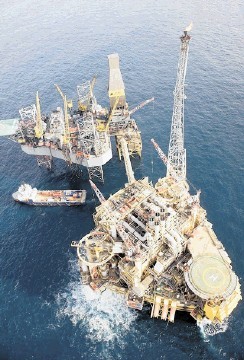
Two major oil and gas companies are to suspend all “non-essential” work carried out on their North Sea platforms as helicopters remain grounded following an emergency ditching last week.
Hundreds of employees onboard Total and Talisman Energy rigs will not return to work until the backlog of stranded staff has been cleared “to avoid using up limited helicopter availability”.
Last night, a spokesman for Total said the company was removing about 100 people from its Elgin, Alwyn and Dunbar platforms as well as a number of workers from contract drilling rigs.
He said non-essential workers – which includes painters and scaffolders – were unlikely to return to the platforms until helicopter operators were allowed to fly their Super Puma EC225s again.
He added it was “impossible” to say when that would be.
A backlog of workers, required to travel on and offshore, built up after all Super Puma helicopters were suspended after an EC225 aircraft had to land on the sea 14 miles off Fair Isle last Monday.
It was operated by CHC Helicopters which, with Bristow and Bond, stopped all Super Puma flights prior to a Civil Aviation Authority (CAA) restriction order being imposed.
Last week, nine Super Pumas were reinstated, but 25 aircraft remained grounded.
Some oil and gas companies are now transferring their staff by boat. Talisman Energy chartered a vessel to collect and replace its employees. The boat was due to return onshore with the stranded workers this morning.
However, a spokes-woman for the company said that even with the use of the vessel and limited helicopter flights, more than 400 workers remained stuck offshore.
She added that Talisman had suspended all work carried out by non-essential members of staff. Both Total and Talisman said this should not affect production for the time being.
A spokeswoman for industry body Oil & Gas UK said: “Individual companies are affected by the continued non-availability of some types of offshore helicopter in different ways and are developing contingency plans to meet their own specific needs. These may well include focusing on essential work.”